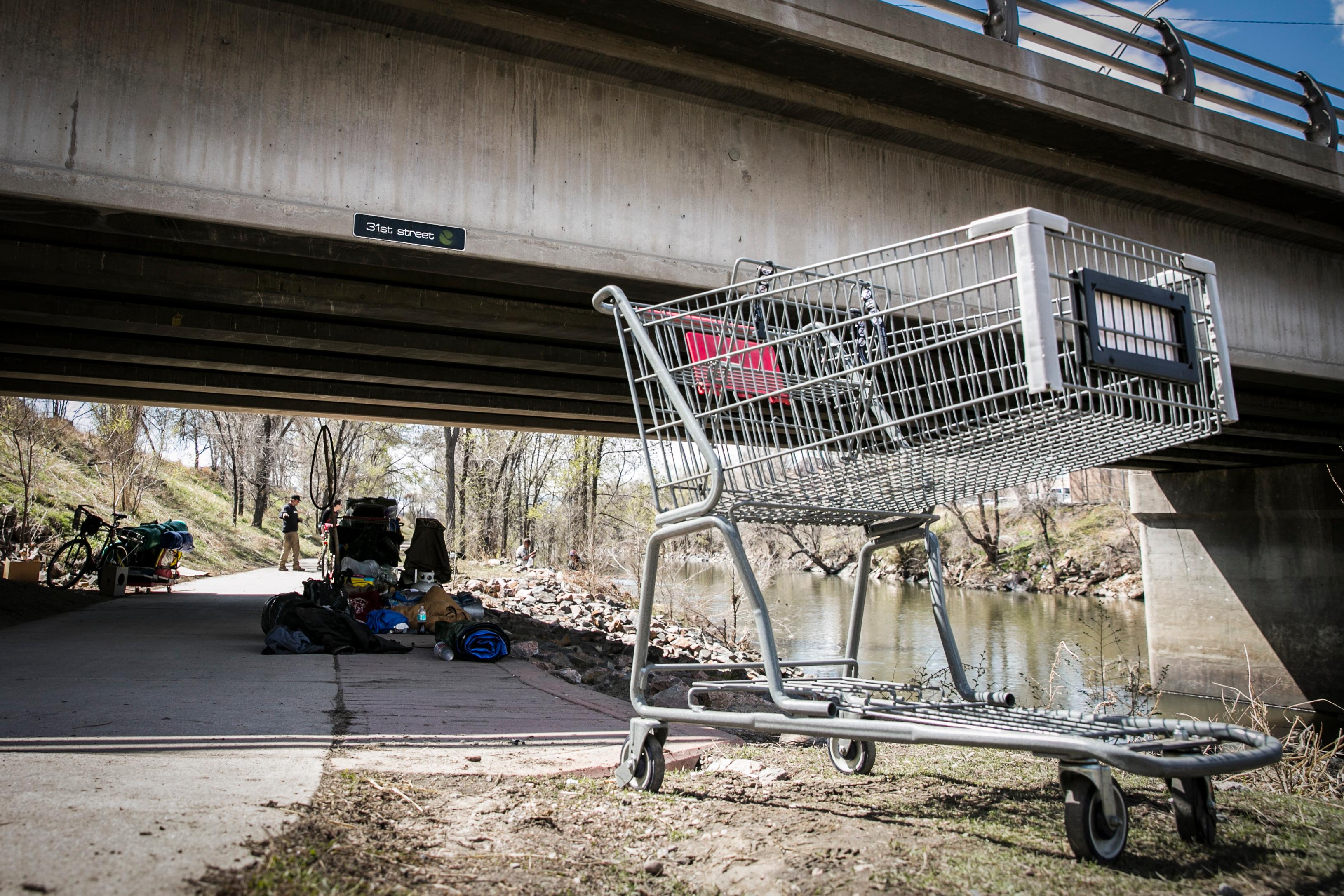
Advocates for those experiencing homelessness are speaking out against so-called urban camping bans meant to limit people from sleeping in public places.
On Monday, Centennial joined several other Colorado cities in barring people from camping on city-owned property.
The new ordinance, passed on Monday night, allows law enforcement to tell campers to “move along.” Proponents say the rules will help protect residents’ safety, while opponents say they amount to a ban on homelessness that push people out of the city with no other alternatives.
“People are just getting moved from one place to the next,” said Cathy Alderman, a spokeswoman with Colorado’s Coalition for the Homeless. “There’s just this flow of people moving around and not being stabilized and not being offered a long-term housing option.”
Alderman said most homeless shelters and social services are located in Denver so people likely sleep in the suburbs at night and are on the move to Denver during the day to access those resources.
Denver, Boulder, Longmont, Parker and Colorado Springs already have similar bans. In May, Denver voters overwhelmingly rejected overturning the city’s urban camping ban, and in June, the city of Englewood conducted a homeless sweep along the South Platte River.
“It was no longer safe for them to be there and we needed to remediate those river banks. Tons of resources went to everyone there and those being asked to move,” said Englewood city spokeswoman Toni Arnoldy. “We don't consider it any type of ban.”
As some Colorado cities continue to add restrictions, they’re still grappling to find a viable solution and connect the homeless to resources. That includes working together. Englewood is working with Sheridan and Littleton to address the issue.
“We are trying to put together a study that will be equitable in each city to figure out what our population of homelessness is, where it predominantly is and what the best solution is going to be for all three of the cities to work together,” Arnoldy said.
Centennial Councilwoman Kathy Turley, who voted for the ordinance, said the bans only push people into neighboring communities. She said she thinks there are other alternatives.
“I personally think that at some point, there needs to be a regional approach and that is perhaps all the cities getting together and coming up with a comprehensive plan to address this growing situation,” she said. “Nobody seems to have a viable answer to change this.”
Arvada spokesman Ben Irwin said as their city has grown so has the homeless population, especially around Olde Town Arvada. He said the city’s main priority is to partner with Jefferson County to have a coordinated approach.
“We’re working with those partners to develop a navigator program, which would help connect people experiencing homelessness to the services that they need,” he said. “What we’re really focused on is building relationships and ensuring people are connected to services that they need.”
Lakewood spokeswoman Stacie Oulton said it’s not uncommon for the city to have a seasonal increase in homeless residents in parks during the summer, but that the city is not, for now, considering a camping ban.
“We aren’t seeing any tents or encampments and there’s no way to know where these residents might have been previously,” she said. “We do have several laws in place that address trespassing or if they were to camp in the parks.” Many Lakewood parks are open to the public until 10 p.m. each day.
In August, Jefferson County will do a homeless count that will include people living in public places, those couch surfing and others in other unstable living situations to design services that better address homelessness, Oulton said.









